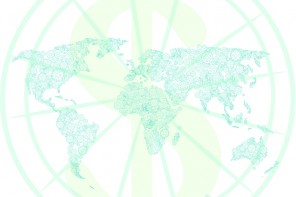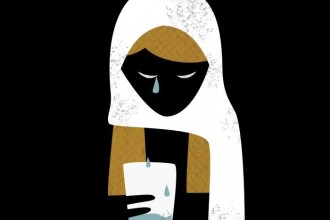Nadzia is a writer, journalist, and world traveler in her mid-thirties, who was born and raised in Eastern Europe. After being laid off from her job one year ago, she moved to Cairo, Egypt to start a new life. Here, she shares her experience as an expat in a place with a very different culture and lifestyle, describes the personal connection she feels to her new home, and explains her commitment to the country—despite its current civil unrest.
After visiting Egypt six years ago, I often thought of moving to Cairo. However, I didn’t have the courage to leave behind my well-paying job in Europe. When I was unexpectedly laid off, I felt strangely relieved. I knew that my opportunity had arisen. I flew to Egypt two weeks later and lived on my savings until I found freelancing work. My globe-trotting days were already behind me, and I looked forward to starting a life in a city where I saw endless opportunities to learn, explore, and challenge myself.
Cairo is an enormous and diverse place. In a single afternoon you can sip a latte at a Starbucks in a wealthy neighborhood of sleek apartment buildings and carefully-manicured lawns, and then be surrounded by ancient mosques, men in white turbans selling guavas off donkey carts, and small, three-wheeled taxis called ‘tuk-tuks’ whizzing by with speakers on full blast. The city is most vibrant downtown, where just walking its streets means dodging speeding, honking cars and crowds spilling out onto the road from overcrowded sidewalks.
Because so many people here struggle with poverty, the city feels more alive. There is an atmosphere of vitality and spontaneity. Daily, basic challenges make residents more willing and truly able to appreciate the good things that life has to offer. While most of New York or Paris is already in bed by midnight on a Tuesday, Cairo’s street side cafés are packed with shisha smokers and groups of friends laughing over mint tea.
In addition to this vibrancy, the best thing about living here is the city’s ability to consistently surprise you. Each day offers an opportunity to explore. Whether it’s something as simple as spotting an elaborate but crumbling doorway from the the window of a taxi that has strayed from the beaten path, or even stumbling upon a small island on the Nile in the middle of the city where residents have resisted urbanization and maintain a rural lifestyle, there is always something new to discover.
Cairo has provided me with invaluable lessons that I simply could not have learned anywhere else. I’ve realized a lot about who I really am, for better and for worse, and the city has reinforced my belief that people are mostly the same everywhere, despite cultural or religious differences. Much of this realization is due to my having identified the parts of myself that I always thought were authentic, but actually existed only for the sake of fitting into the society and culture in which I was born and raised. These days, it’s also been important to have been able to challenge prevailing stereotypes about the ‘Islamic world’, while media and governments have portrayed it in extremes.
Because I had visited Cairo already and had Egyptian friends, I was somewhat accustomed to the country’s social and cultural norms. Yet as a foreigner, it can still be difficult to straddle the line between caution and impoliteness, especially when it comes to interacting with Egyptian men. They often target foreign women as easy sexual conquests. This can lead to the kind of harassment that many expat women would probably say is the worst thing about living here. You are likely to get inappropriate comments, aggressive stares, or even be followed. Sadly, this is something that all women, including Egyptians, have to deal with on a daily basis.
Personally, it’s gotten better with time. I think a lot of it has to do with my ability to fit in and carry myself with confidence. Most people don’t give me a second glance these days, and if they do I’m much better at just ignoring it. During my first few months in Cairo, getting the same kinds of looks really bothered me, and I never really felt at ease when I was out alone. Now, I’ve come to accept that some people will stare simply because I look different, and that’s natural. I’ve stopped suspecting the worst and I’ve learned to regard the advice and concerns of my more conservative friends as overly cautious and even a bit paranoid.
The recent unrest has brought along with it a new set of challenges that I could not have foreseen. However, I have not felt fearful or unsafe, as people living outside of the country might assume based upon what they see in the news. The violence has been largely confined to one particular neighborhood to which I very rarely go, and the city is large enough that other hotspots can be just as easily avoided. I’ve found it frustrating to reassure family and friends that I really am safe, and I have felt somewhat guilty for having given them a reason to be concerned.
While it may sound trite, the biggest challenge I’ve faced as a non-Egyptian in recent weeks has been the nightly boredom that has been the result of the current martial law. In a city renowned for its nightlife, residents now face fines or arrest if caught in the street after curfew. I’ve mostly been watching movies and finally catching up on projects that had fallen victim to procrastination. It’s frustrating to feel as if I’m stuck inside wasting my time when I want to be out exploring the city. To make matters worse, the extreme summer heat has made such trips during the daytime practically unbearable.
Regardless, experiencing Cairo during this uncertain period has actually served to cement the bond I feel with the Egyptian people. Having been affected by the same problems has granted me the ability to share in their frustrations regarding the Muslim Brotherhood, whom most view as terrorists and whose actions are regarded as shocking, violent, and inhumane. On the other hand, it has also given me the opportunity to share in the sense of humor that has arisen from the situation as a way of staying positive. This connection I feel extends to the city itself, as well as to its history. Having spent the 30th of June amidst the huge crowd of protesters cheering and dancing in celebration of the anticipated removal from power of President Morsi and the Muslim Brotherhood made me realize that I’ve both experienced Cairo’s most beautiful and most painful moments.
I’m committed to Cairo, despite its current unrest and instability. I’ve worked too hard and invested far too much of myself in the city and its people to give up now. Though the constant political debates and violence have grown tedious and discouraging, I long to see a secular and prosperous Egypt with leadership that fights for the poor, against big business, and against the interests of a powerful military which has a stranglehold on the national economy. It will be a long and painful struggle, and the future may be uncertain, but I do have hope that things will get better.
It takes guts, patience, open-mindedness, and tolerance to live in a city like Cairo as an expat these days. In addition to the current instability, many foreigners get fed up with traffic, harassment, noise, or any of the other daily challenges. They overlook all the good things that the city has to offer. It’s people like this, I believe, that are unlikely to be happy anywhere, let alone in Egypt. Personally, I still feel that there is so much to see and experience. Sometimes, when I’m caught up in my routine and I think I might lose sight of what I love about this city, I’ll be riding in a taxi along the Nile or I’ll unexpectedly catch a view of the Cairo Tower as it peeks out between apartment high rises and it hits me. There’s nowhere else where I’d rather be.







